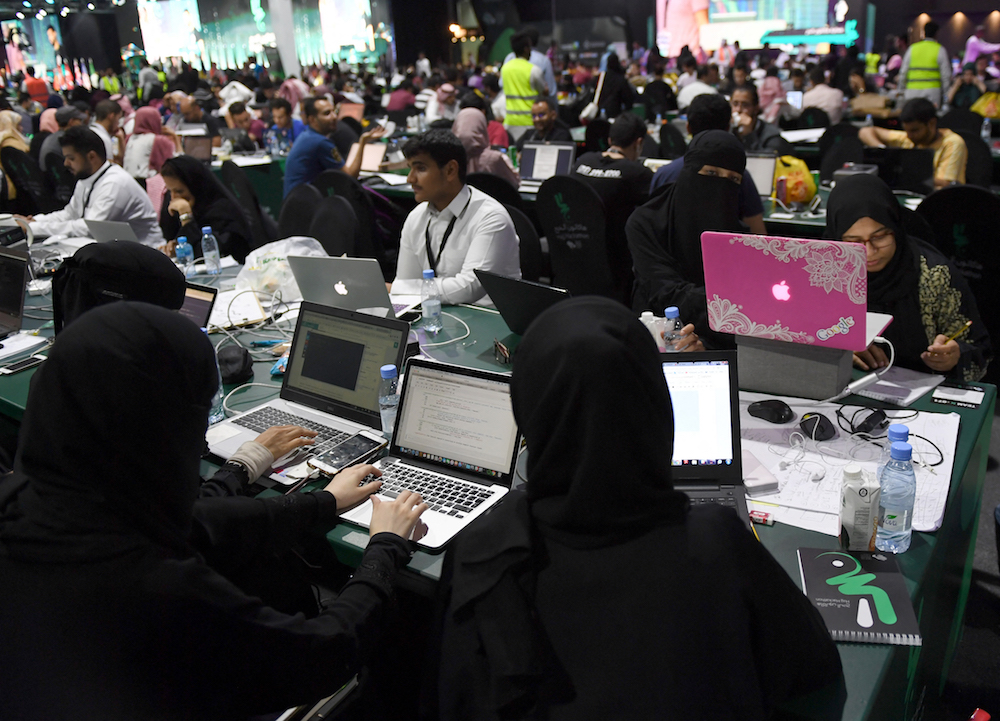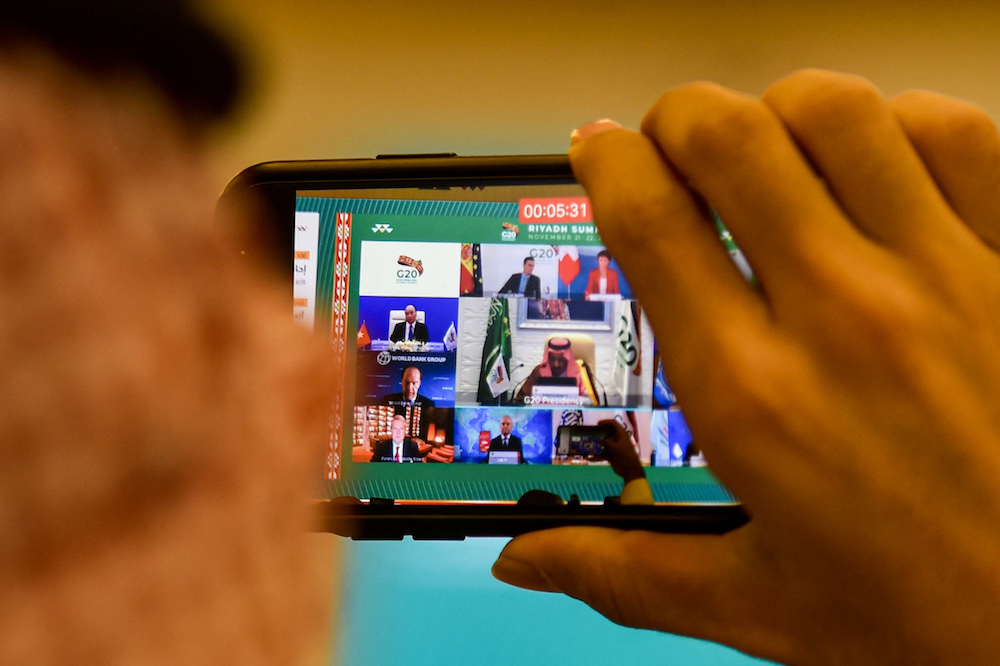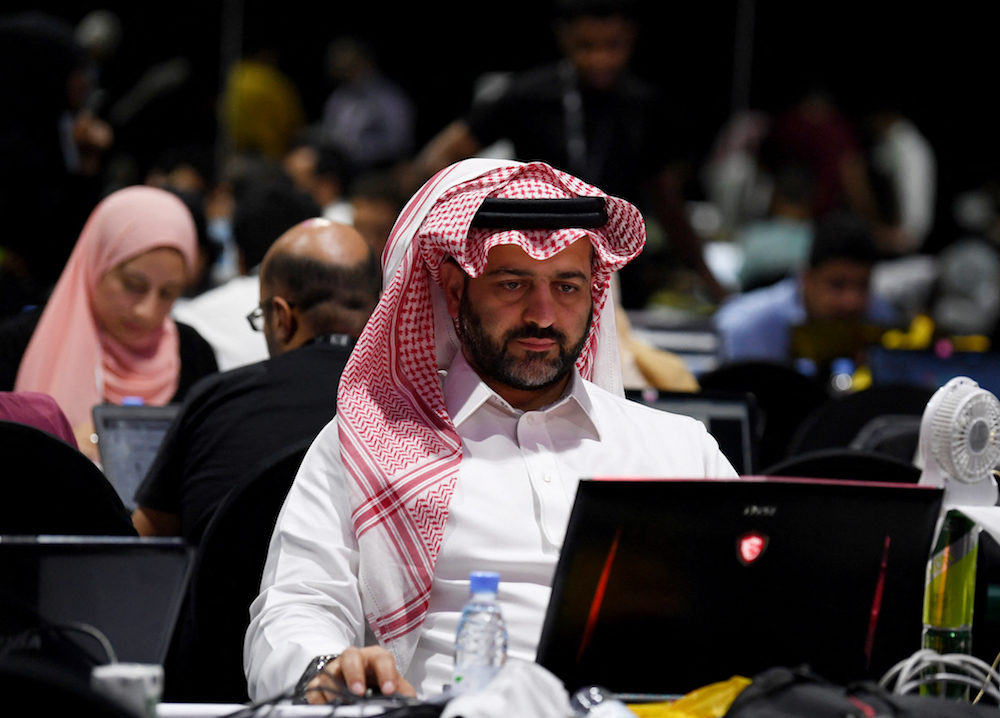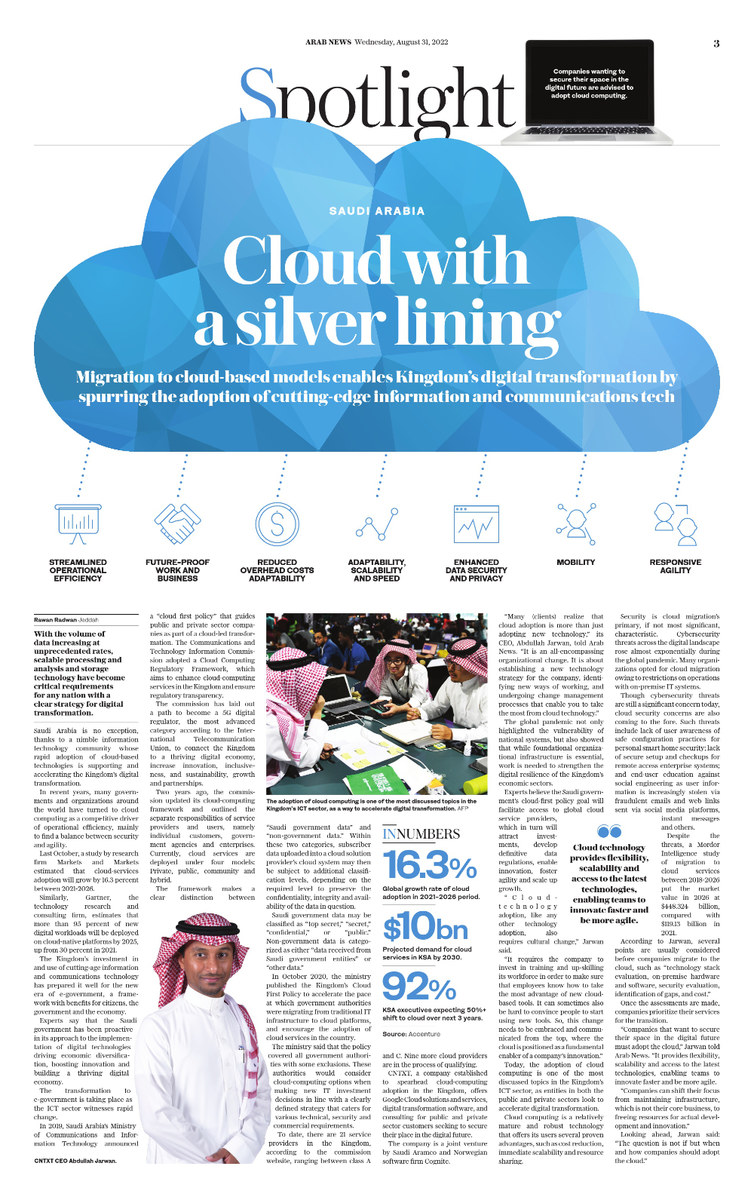JEDDAH: With the amount of data increasing at an exponential rate, doubling every two years, information processing and analysis tools and storage technologies have become critical requirements for any nation with a clear strategy for digital transformation.
Saudi Arabia is no exception, thanks to a nimble information technology community whose rapid adoption of cloud-based technologies is supporting and accelerating the Kingdom’s digital transformation.
In recent years, many governments and organizations around the world have turned to cloud computing as a competitive driver of operational efficiency, mainly to find a balance between security and agility.
Last October, a study by research firm Markets and Markets estimated that cloud-services adoption will grow by 16.3 percent between 2021-2026. Similarly, Gartner, the technology research and consulting firm, estimates that more than 95 percent of new digital workloads will be deployed on cloud-native platforms by 2025, up from 30 percent in 2021.

The Kingdom’s investment in and utilization of cutting-age information and communications technology has prepared it well for the new era of e-government, a framework with benefits for citizens, the government and the economy.
Experts say the Saudi government has been proactive in its approach to the implementation of digital technologies driving economic diversification, boosting innovation and building a thriving digital economy.
The transformation to e-government is taking place as the ICT sector witnesses rapid change. In 2019, Saudi Arabia’s Ministry of Communications and Information Technology announced a “cloud first policy” that guides public and private sector companies as part of a cloud-led transformation.
The Communications and Technology Information Commission adopted a Cloud Computing Regulatory Framework, which aims to enhance cloud-computing services in the Kingdom and ensure regulatory transparency.

Cloud technology provides flexibility, scalability and access to the latest technologies, enabling teams to innovate faster and be more agile. (AFP)
The commission has laid out a path to become a 5G digital regulator, the most advanced category according to the International Telecommunication Union, to connect the Kingdom to a thriving digital economy, increase innovation, inclusiveness, and sustainability, growth and partnerships.
Two years ago, the commission updated its cloud-computing framework and outlined the separate responsibilities of service providers and users, namely individual customers, government agencies and enterprises. Currently, cloud services are deployed under four models: Private, public, community and hybrid.
The framework makes a clear distinction between “Saudi government data” and “non-government data.” Within these two categories, subscriber data uploaded into a cloud solution provider’s cloud system may then be subject to additional classification levels, depending on the required level to preserve the confidentiality, integrity and availability of the data in question.
Saudi government data may be classified as “top secret,” “secret,” “confidential,” or “public.” Non-government data is categorized as either “data received from Saudi government entities” or “other data.”
FASTFACTS
* Digitization is the transformation of information from analog or manual to digital, such as the conversion of handwritten records into computerized versions.
* Digitalization is the process of applying digital tech and capabilities to tasks normally handled by people, delivering improved outcomes.
In October 2020, the ministry published the Kingdom’s Cloud First Policy to accelerate the pace at which government authorities were migrating from traditional IT infrastructure to cloud platforms, and encourage the adoption of cloud services in the country.
The ministry said that the policy covered all government authorities with some exclusions. These authorities would consider cloud-computing options when making new IT investment decisions in line with a clearly defined strategy that caters for various technical, security and commercial requirements.
To date, there are 21 service providers in the Kingdom, according to the commission website, ranging between class A and C. Nine more cloud providers are in the process of qualifying.
CNTXT, a company established to spearhead cloud-computing adoption in the Kingdom, offers Google Cloud solutions and services, digital transformation software, and consulting for public and private sector customers seeking to secure their place in the digital future.

Companies wanting to secure their space in the digital future are advised to adopt cloud computing. (AFP)
The company is a joint venture by Saudi Aramco and Norwegian software firm Cognite.
“Many (clients) realize that cloud adoption is more than just adopting new technology,” its CEO, Abdullah Jarwan, told Arab News. “It is an all-encompassing organizational change. It is about establishing a new technology strategy for the company, identifying new ways of working, and undergoing change management processes that enable you to take the most from cloud technology.”
The global pandemic not only highlighted the vulnerability of national systems, but also showed that while foundational organizational infrastructure is essential, work is needed to strengthen the digital resilience of the Kingdom’s economic sectors.
Experts believe the Saudi government’s cloud-first policy goal will facilitate access to global cloud service providers, which in turn will attract investments, develop definitive data regulations, enable innovation, foster agility and scale up growth.
“Cloud-technology adoption, like any other technology adoption, also requires cultural change,” Jarwan said.
INNUMBERS
* 16.3 percent Global growth rate of cloud adoption in 2021-2026.
* $448bn Projected global cloud services market value by 2026.
* $10bn Projected demand for cloud services in KSA by 2030.
* 92 percent KSA executives expecting 50 percent+ shift to cloud over next three years.
“It requires the company to invest in training and up-skilling its workforce in order to make sure that employees know how to take the most advantage of new cloud-based tools. It can sometimes also be hard to convince people to start using new tools. So, this change needs to be embraced and communicated from the top, where the cloud is positioned as a fundamental enabler of a company’s innovation.”
Today, the adoption of cloud computing is one of the most discussed topics in the Kingdom’s ICT sector, as entities in both the public and private sectors look to accelerate digital transformation.
Cloud computing is a relatively mature and robust technology that offers its users several proven advantages, such as cost reduction, immediate scalability and resource sharing.
Security is cloud migration’s primary, if not most significant, characteristic. Cybersecurity threats across the digital landscape rose almost exponentially during the global pandemic. Many organizations opted for cloud migration owing to restrictions on operations with on-premise IT systems.
Though cybersecurity threats are still a significant concern today, cloud security concerns are also coming to the fore. Such threats include lack of user awareness of safe configuration practices for personal smart home security; lack of secure setup and checkups for remote access enterprise systems; and end-user education against social engineering as user information is increasingly stolen via fraudulent emails and web links sent via social media platforms, instant messages and others.

Participants including Saudi women attend a hackathon in Jeddah in 2018. (AFP/File Photo)
Despite the threats, a Mordor Intelligence study of migration to cloud services between 2018-2026 put the market value in 2026 at $448.324 billion, compared with $119.13 billion in 2021.
According to Jarwan, several points are usually considered before companies migrate to the cloud, such as “technology stack evaluation, on-premise hardware and software, security evaluation, identification of gaps, and cost.”
Once the assessments are made, companies prioritize their services for the transition.
“Companies that want to secure their space in the digital future must adopt the cloud,” Jarwan told Arab News. “It provides flexibility, scalability, and access to the latest technologies, enabling teams to innovate faster and be more agile.
“Companies can shift their focus from maintaining infrastructure, which is not their core business, to freeing resources for actual development and innovation.”
Looking ahead, Jarwan said: “The question is not if but when and how companies should adopt the cloud.”































